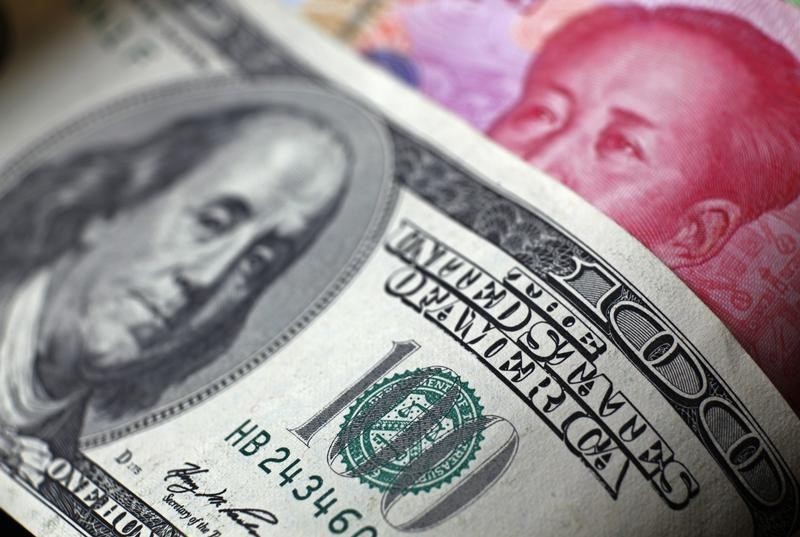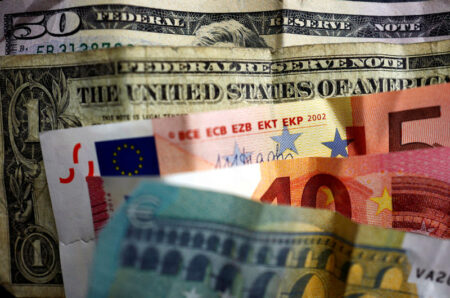Investing.com– Most Asian currencies moved little on Friday as weak data from Japan ramped up concerns over slowing global economic growth, while the Chinese yuan slid to an over 15-year low against the dollar on renewed concerns over Sino-U.S. relations.
The fell 0.2% to 7.3443, its weakest level against the dollar since February 2008. The currency was hit with a wave of selling pressure this week as worsening rhetoric with the U.S. added to concerns over a Chinese economic slowdown.
Beijing reportedly from using Apple Inc’s (NASDAQ:) iPhone for official purposes, with the move coming amid calls from U.S. officials for a blanket ban of tech exports to China.
The moves also came as economic data from China continued to paint a bleak picture of the world’s second-largest economy, driving up concerns over a sluggish post-COVID recovery in the country.
Dollar pinned near 6-month high on Fed fears
Data released overnight showed U.S. unexpectedly fell last week. The reading, coupled with a strong reading on , showed that the labor market and inflation remained resilient.
These two factors give the Federal Reserve more impetus to keep rates higher, which posits a weak outlook for Asian markets. The central bank is set to , and is widely expected to keep rates at an over 20-year high.
The and fell about 0.1% each in Asian trade, but remained close to six-month highs amid growing fears of a hawkish Fed. U.S. Treasury yields also remained largely elevated this week.
This in turn weighed on most Asian currencies, as did weak economic data from Japan.
Japanese yen at 10-mth lows, Q2 GDP revised lower
The hovered just above a 10-month low on Friday, coming under renewed pressure after the government downgraded its initial growth estimate for (GDP).
The revision showed that continued monetary stimulus from the Bank of Japan was not offering as much support to the Japanese economy as initially estimated, especially as the country grapples with sluggish wage growth and weakening demand in its biggest export markets, particularly China.
Still, BOJ officials largely reiterated the need for more loose monetary policy in the coming months, which points to more pressure on the yen as the gap between local and U.S. interest rates widens.
Markets were also watching for any intervention in currency markets by the Japanese government, following continued warnings over speculating against the yen.
Broader Asian currencies moved little, but were nursing steep losses for the week. The rose 0.1% after coming close to record lows, while the rate-sensitive rose 0.1%, but was down 1.2% for the week.
Concerns over China dragged the down 1% this week, as did the keeping interest rates on hold.
Read the full article here












